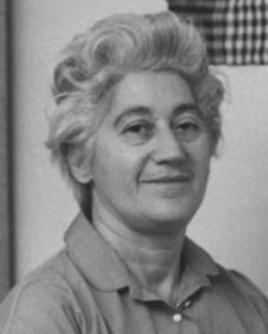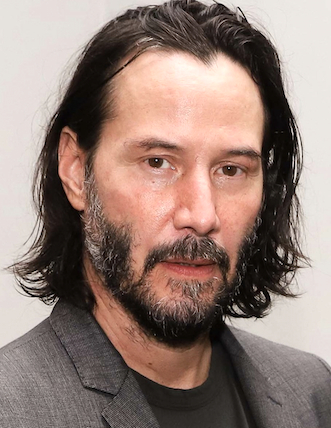September 2
Claire Eglin Culhane

On this date in 1918, Canadian activist Claire Eglin was born in Montreal to Russian-Jewish immigrants. She and her brother were the only Jewish students at Maisonneuve School, she told an interviewer. “At Christmas time, we were rejected because we didn’t believe in Jesus Christ. At Easter, we were sometimes pelted with rocks because ‘the Jews crucified Christ.’ ” She began her activist efforts as a teenager, helping with relief efforts in Quebec during the Great Depression and protesting to end the Spanish Civil War.
Despite anti-Semitic discrimination and other obstacles, she graduated from high school, learned how to drive, and trained as a nurse. Eglin Culhane also took a business course to work for a family company. She later found consistent employment by specializing in new systems of medical records. She married union organizer Gerry Culhane and they had two daughters. The couple later divorced.
Eglin Culhane established a tuberculosis hospital in Vietnam during the war, picketed on Parliament Hill in Ottawa against the war, staged sit-ins at prison wardens’ offices, hosted a cable TV show called “Instead of Prisons,” and spoke extensively on the subject of prisons as social control. In 1968, she met with Prime Minister Pierre Trudeau to discuss Canada’s involvement in the Vietnam War. She came under police scrutiny and a file on her expanded to several hundred pages, a fact she was proud of.
One of her final public acts was to take sides with Aboriginals in a dispute with local officials at the OKA Reservation in Ontario. She wrote several books, including Barred from Prison (1979) and Why Is Canada in Vietnam? The Truth About Our Foreign Aid (1972). Biographer Mick Lowe’s 1992 book was titled One Woman Army: The Life of Claire Culhane. In her own book, No Longer Barred from Prison: Social Injustice in Canada (1991), she wrote, “We can only proceed, individually and collectively, to make whatever improvements are possible in our respective areas of concern, sustained by the hope that others are doing the same.”
She was inducted into the Order of Canada, the nation’s highest civilian honor. She was also a member of the BC Humanist Association. (D. 1996)
“Once when asked about religion, she replied, ‘Do unto others as you would have them do unto you.’ ”
— "A Humanist Portrait: Claire Culhane" by Glenn Hardie, Humanist Perspectives (Spring 2013)
Keanu Reeves

On this date in 1964, actor Keanu Charles Reeves was born in Beirut, Lebanon, to Patricia (née Taylor) and Samuel Reeves Jr. His father, a mixed-ancestry Hawaiian, abandoned the family when Reeves was 3. His English mother, a costume designer and performer, would marry three more times. Reeves grew up primarily in Toronto and became a naturalized Canadian citizen.
Keanu translates roughly from Hawaiian to “cool breeze over the mountains.” He attended four high schools, played hockey and worked as an actor while in school before dropping out at age 17. His feature film debut was in the 1986 hockey flick “Youngblood” with Patrick Swayze and Rob Lowe. “Bill & Ted’s Excellent Adventure” (1989) provided his breakthrough role, followed by “Parenthood.”
From then on it was all systems go, as he appeared in movie after movie for a decade. Of particular note in the 1990s were “Point Break,” “Bill & Ted’s Bogus Journey,” “My Own Private Idaho,” “Bram Stoker’s Dracula,” “Little Buddha,” “Speed,” “Johnny Mnemonic,” “The Devil’s Advocate” with Charlize Theron, “Feeling Minnesota” and in 1999 “The Matrix,” which with its sequels became a franchise of sorts.
Though Reeves would often face criticism for his deadpan delivery and perceived limited range, he played roles in a variety of genres, from art-house fare to action thrillers. In the rom-com “Something’s Gotta Give” (2003), he co-starred with Jack Nicholson and Diane Keaton. In 2005, when he got a star on the Hollywood Walk of Fame, he played the title role in the supernatural thriller “Constantine” about a detective who communicates with half-angels and half-demons.
Asked if he grew up “rooted in the Christian mythology” of “Constantine,” Reeves said, “I went to a Catholic boys school for a year, but that was to play hockey. Religion class was quite contentious for me.” (AP interview, Feb. 15, 2005) “I wasn’t raised in any special denominations and I haven’t taken on any so far,” Reeves replied to another reporter’s question whether his “Constantine” role had changed his views on religion. (News24 South Africa, Feb. 3, 2005)
After several years of stagnation, his career had a resurgence in 2014 with his leading role as a retired hitman seeking vengeance in “John Wick.” Sequels followed in 2017 and 2019, with at least two others in the works for 2022 and thereafter. “Bill & Ted Face the Music” was released in 2020 and a fourth Matrix film opened in December 2021.
Jennifer Syme, Reeves’ significant other, gave birth eight months into her pregnancy in 1999 to a stillborn daughter. They broke up several weeks later. Syme died in 2001 after her vehicle hit three parked cars in Los Angeles. Reeves met Alexandra Grant at a 2009 dinner party; they went on to collaborate on two books and went public with their relationship in 2019.
Reeves is not a Buddhist, despite persistent rumors that he is. A Daily Beast reporter asked him about it in 2017. “No, no. I had a little bit of experience with it when I was working on ‘Little Buddha,’ but I haven’t taken refuge in the dharma.”
In the Associated Press interview referred to earlier, he was asked “What are your notions of heaven and hell, eternal damnation vs. eternal bliss?” Reeves: “Well, I hope I get the bliss. And I know I’m going to have to work for it. But I’ve got to say, really, I have no kind of, can I say ‘secular religiosity.’ ”
The follow-up question: “What would be your concept of a personal hell for all eternity?” Reeves: “I guess living without love, without experiencing it or being able to give it. I think the aspect of that would be, that’s pretty strong punishment.”
PHOTO: Reeves in 2019 in São Paulo, Brazil; Governo do Estado de São Paulo photo under CC 2.0.
STEPHEN COLBERT: What do you think happens when we die?
REEVES: I know that the ones who love us will miss us.— "The Late Show with Stephen Colbert" (May 11, 2019)
Keir Starmer

On this date in 1962, Keir Rodney Starmer, the first openly atheist British prime minister in history, was born in London to working-class parents, Josephine (Baker) a nurse, and Rodney Starmer, a toolmaker for injecting plastics.
Starmer was politically active as a youth growing up in a small town in Surrey and joined the Labour Party Young Socialists at age 16. He earned undergraduate and graduate law degrees from the University of Leeds and the University of Oxford in 1985-86. His graduation ceremony was “the only time my dad had put a suit on,” he told British Vogue. (July 5, 2024)
After appointment to the bar as a barrister in 1987, he had several high-profile cases, including as part of the defense team for two environmental activists being sued for libel by the McDonald’s Corp. The case dragged on for over 10 years. Starmer advised them pro bono and did the same for numerous death row prisoners in Africa and the Caribbean. He won several awards, including human rights lawyer of the year from one legal advocacy group.
In 2008 he was named to head the Crown Prosecution Service, the main public agency for conducting criminal prosecutions in England and Wales, and instituted reforms to bring a focus on human rights into the system. He served until 2013 and was elected to the House of Commons as a Member of Parliament (MP) in 2015 as a Labour candidate after achieving knighthood in 2014.
Starmer voted against leaving the European Union in 2016. He was reelected in 2017 and 2019 and was elected in 2020 to lead the Labour Party, succeeding Jeremy Corbyn. He led Labour four years later in July 2024 to a landslide victory ending 14 years of Tory governments and became prime minister. His full title became the Right Honourable Sir Keir Rodney Starmer.
He had declined a religious oath of office when he was sworn into Parliament, instead making a “solemn affirmation” to “truly declare and affirm that I will be faithful and bear true allegiance to His Majesty King Charles, his heirs and successors according to law.” Compare that to senior MP Liz Truss, who held a bible and said, “I swear by Almighty God that I will be faithful and bear true allegiance to His Majesty King Charles, his heirs and successors, according to law, so help me God.” (The Telegraph, Sept. 10, 2022)
He married Victoria Alexander, a legal solicitor a decade younger than him, in 2007. Her mother converted to Judaism to marry her father, an observant Jew. The Starmers have a son born in 2008 and a daughter born in 2010. They are being raised in their mother’s Jewish heritage, their father said: “My wife in particular wants our children to know the faith of her family.” (The Jewish Chronicle, Nov. 16, 2020)
PHOTO: Starmer’s official portrait as prime minister in 2024; photo by Simon Dawson under Open Government Licence v3.0.
“I am not of faith, I don’t believe in God, but I can see the power of faith and the way it brings people together.”
— The Sunday Times Magazine (April 11, 2021)
